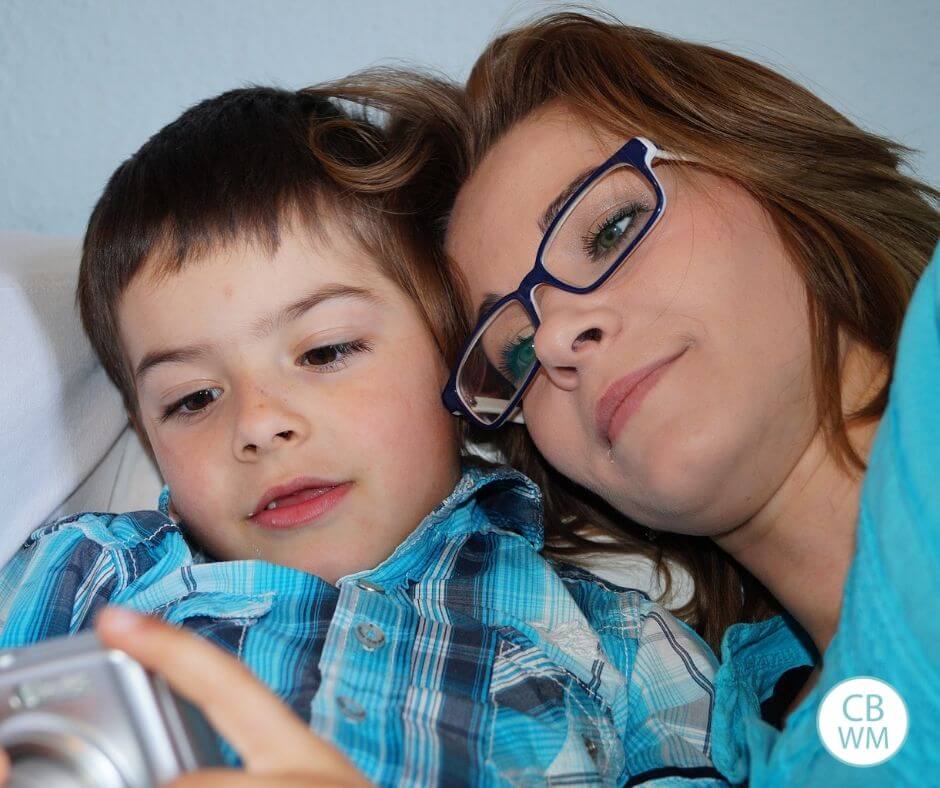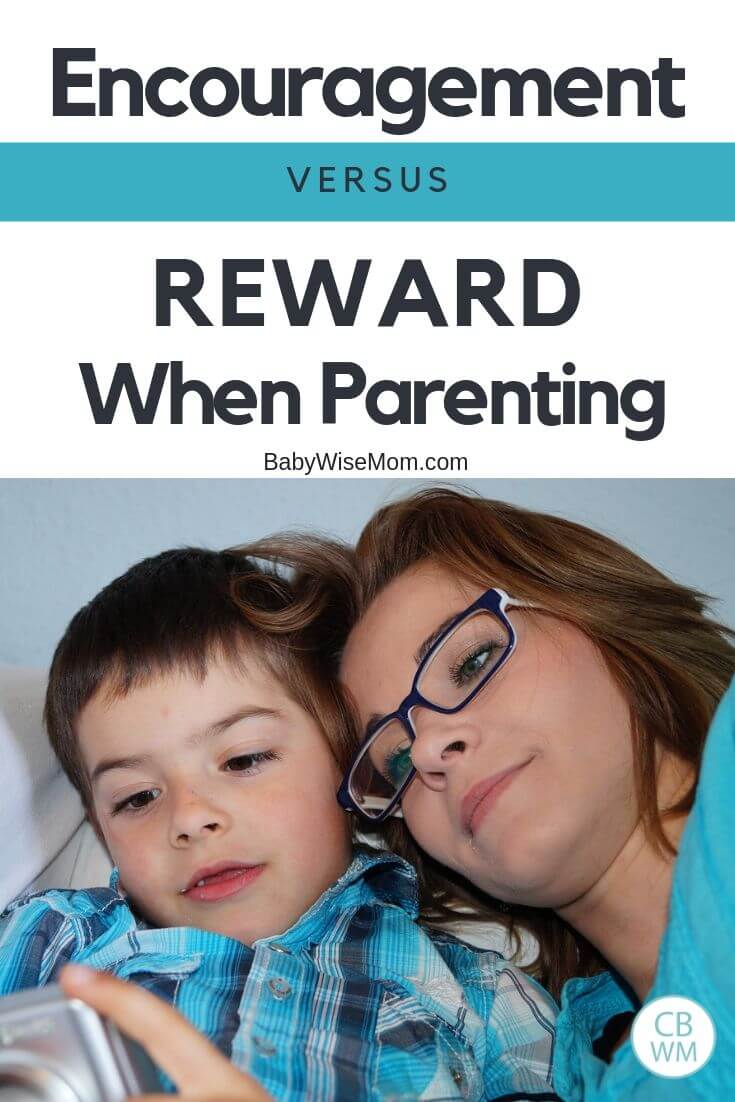Understanding the difference between encouragement and reward and when to use each with your children. Discipline tips for parents.

Dr. Kevin Leman states that encouragement is superior to rewards when working to get kids to obey (Making Children Mind Without Losing Yours, starting on page 50).
Are you squinting your eyes as you try to visualize the difference between encouragement and rewards? Let’s elaborate.
Leman says the difference between encouragement and rewards is subtle, but significant. He starts off by pointing out that you can get children to do things by offering them some reward that is of value to them. For your three year old, that might be candy. For your pre-teen, that might be money.
He then asks the question, why do you want your child to do things? For money? To know responsibility? Because he is a member of the family? Because things need to be done? Leman says three of these reasons are a different motivation than one. Money is not what you want to be the motivator.
Leman points out that we should not give our children rewards for things they should be doing anyway. You want your children to do things for the right reason. Are there times you will use reward systems? Of course! The -wise series offers different scenarios when you might use a reward. I am reminded of “Three Candy Speed” discussed in On Becoming Toddlerwise. You use this to teach your children what “fast” looks like. But the authors suggest you use the candy one time, not every time.
Read: Encouragement as a Discipline Tool
In On Becoming Pottywise, the system for toilet training involves rewards. So yes, there are times you will use rewards to be an extra motivator, but you don’t want that to be the only motivator, or even a consistent motivator.
So how do you encourage? Encouragement is a word of affirmation–one of the five love languages. Encouragement needs to emphasize the act, not the person. Leman says that this ensures the child that your love is unconditional. You don’t say, “What a good boy you are!” You say something like, “What a nice job you did! I bet you feel great about it. Thank you for your help, I appreciate it.” Our children need to know that they are not loved only when they perform correctly.

I must confess that I often find myself saying, “you are a good boy!” when Brayden helps out around the house. I have seen that he will seek reassurance when he helps out and says, “I am a good boy for helping you, huh Mama!” I can see where Leman is coming from. I need to work on making sure Brayden knows that he is loved no matter what. I do think he is a good boy for helping out around the house, but I can express that in other ways so he doesn’t think I am only happy with him when he is helping. I don’t necessarily think he thinks that, but I could see it getting there some day as he gets older and insecurities start to take a role in his life.
RELATED POSTS/BLOG LABELS:

